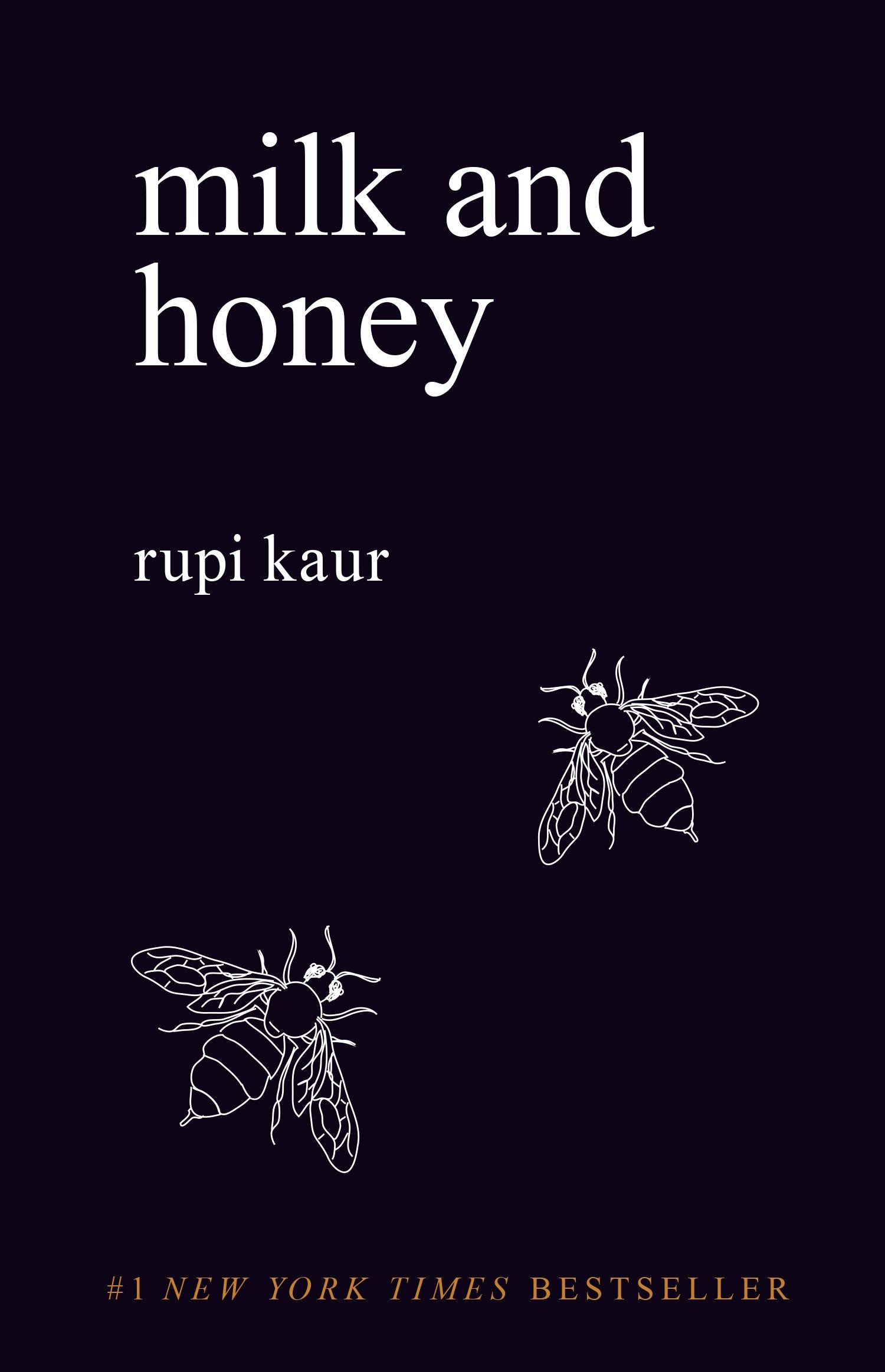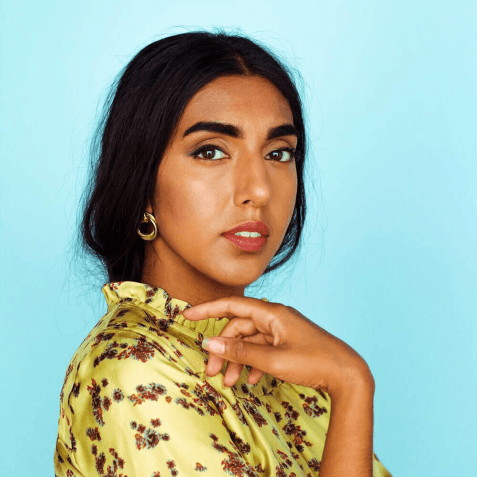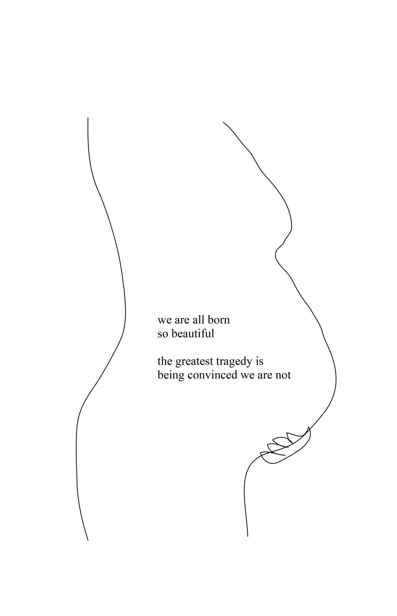milk and honey summary
9 min read ⌚
 Yesterday was Rupi Kaur’s 26th birthday. (Happy birthday, Rupi!)
Yesterday was Rupi Kaur’s 26th birthday. (Happy birthday, Rupi!)
To honor her – as well as show our appreciation for her work – we decided to make her two books (milk and honey and the sun and her flowers) the first two collections of poetry summarized on our site.
Consider that our gift to you, a way of paying Rupi’s gift of poetry forward.
Do the same: buy her books and gift them to someone you love; preferably a female; especially if she’s hurting.
Trust us: her poems do wonders.
They are understanding and compassionate; they are mystical and healing
We start with milk and honey, “a collection of poetry and prose about survival… about the experience of violence, abuse, love, loss, and femininity.”
Who Should Read “milk and honey”? And Why?
Unfortunately, people don’t enjoy poetry nowadays as much as they used to.
Just for an illustration, according to the 2015 National Endowment for the Arts survey of arts participation, only 6.7 percent of the American population has read at least one poem during the past year.
That’s a decline of 45 percent within a decade!
We certainly don’t know all the reasons for this abysmal statistic, but one of them must be the way poems are written in this day and age. It seems that ever since T. S. Eliot’s 1921 dictum that “poets in our civilization, as it exists at present, must be difficult” – poets are difficult.
Which is probably why there was such an uproar when Bob Dylan won the Nobel Prize for Literature: even his most surrealistic songs seem comprehensible when compared to those written by the critically acclaimed poets of today.
Rupi Kaur is not one of these poets. In fact, she’s not even that well regarded by many critics. But does it matter?
milk and honey sold in 2.5 million copies worldwide – thousands and even tens of thousands of times more than the books written by some of these critically acclaimed poets (by the way, white males most of the time).
And what’s the point of writing a book nobody would read? Even if you know the most important thing in the world, what difference does it make if you are not able to relay it in meaningful and comprehensible language? How many lives would an intelligible poem change?
As the ancient prophetess Cassandra knew full well – probably not even one. When nobody understands your prophecies, people will go on living the way they would have in their absence.
So, who should milk and honey?
Everyone. Especially women.
Because Kaur’s poetry is clear, personal and it touches something profound. Because she’s not afraid to talk about things other people don’t want to.
And because reading her has meant falling in love with poetry all over again for millions of people; so, it may mean the very same to you.
Rupi Kaur Biography
Rupi Kaur is an Indian-born Canadian poet, illustrator, and photographer.
is an Indian-born Canadian poet, illustrator, and photographer.
Her family immigrated to Canada when she was four years old; since she didn’t understand the language, her mother encouraged Kaur to star expressing herself with drawings and paintings. And she has – ever since.
She started writing anonymously while in high school. After completing her degree in rhetoric studies and professional writing at the University of Waterloo, Kaur began sharing her work via Tumblr.
In 2014, she began adding simple illustrations to her poems and started publishing them on Instagram. The artworks had a haunting effect: very soon, she gained a large number of followers. By the end of the year, after being rejected by numerous publishers, Rupi Kaur self-published her first collection of poems, milk and honey; an enormous success, the book sold over 2.5 million copies and remained on The New York Times bestseller list for almost 80 weeks!
Last year, one day before her birthday, Kaur published her second collection, the sun and her flowers. The book has already sold over a million copies.
Find out more at https://rupikaur.com
milk and honey summary
Rupi Kaur’s milk and honey (the lowercase is – if you didn’t get that by now – intentional) is an intermedial collection of poetry, prose, and hand-drawn illustrations.
The book is divided into four sections, each of them encompassing poems focusing on a different theme, the one suggested in their titles: the hurting, the loving, the breaking, and the healing.
Background
“I like to think milk and honey began the day i was born,” writes Rupi Kaur in the FAQ on her website answering the question “where did milk and honey begin?” “The reason for this,” she goes on, “is that i take from my lifelong experiences for this collection. i take from a lot of pain i’ve experienced or my family has experienced. Or my community has experienced.”
The Title
It’s a beautiful title this one – milk and honey – don’t you think?
As Rupi Kaur explains herself, it’s also one which says a lot:
years ago i wrote a poem about the 1984 genocide of sikhs in india. in it there is a line about the women who lived through that terrible time. their resilience is breathtaking. they are the enduring survivors to the murders of their husbands and children. the survivors of betrayal. rape. torture. i write that they come out of that terror as smooth as milk and as thick as honey. i performed that piece around my hometown. but it didn’t feel right in my heart to leave those words right there. in the confines of a single line in a single poem. that day a higher power was at play because i opened up a brand new journal and on the front page wrote those words. something inside me said ‘this will be more one day’. and here we are. this is how the title ‘milk and honey’ is born.
So, you already know what you can expect from the poems inside this book.
They are themselves “smooth as milk and as thick as honey.”
And they are also as sweet and as healing.
Actual “tools to heal wounds, repair the insides.”
Dedication and Epigraph
There’s a sense of urgency permeating through Rupi Kaur’s book. As if she wants to tell you: read these poems; they are everything I am; and they have helped me; they may help you too…
Written “for/ the arms/ that hold me,” milk and honey is a sort of a healing cry, as evidenced by the book’s beautiful epigraph:
my heart woke me crying last night
how can i help i begged
my heart said
write the book
The epigraph explains the therapeutic structure of the collection: hurt juxtaposed with love, heartbreak with healing.
the hurting
The first section of Rupi Kaur’s milk and honey – the hurting – mainly explores two themes: families and sex. As the title of the section implies, neither in a way which will make you smile; rather, in a way which will make you ache and feel the ache; think and understand your thoughts.
The father is usually either absent or uncaring in these poems and the mothers and the daughters are taught to either be silent (“this is how the women in my family/ learned to live with their mouths closed”) or, worse yet, confuse love and anger:
every time you
tell your daughter
you yell at her
out of love
you teach her to confuse
anger with kindness
which seems like a good idea
till she grows up to
trust men who hurt her
cause they look so much
like you
The uncared-for daughters with a fundamentally unsuitable father model (“a daughter should/ not have to/ beg her father/ for a relationship”) turn into girls who fall in love with boys who use their bodies:
i’ve had sex she said
but i don’t know
what making love
feels like
But that’s the only possible outcome. Because, after all, a father “was supposed to be/ the first male love of your life” and “you still search for him/ everywhere.”
the loving
In the next section, the loving, things are turned around by – what else if not her – the power of love! One poem from this section almost reads like a comforting lullaby for the aching ones of the first section:
love will come
and when love comes
love will hold you
love will call your name
and you will melt
sometimes though
love will hurt you but
love will never mean to
love will play no games
cause love knows life
has been hard enough already
However, something that the author stresses over and over again in this chapter is that you can’t love somebody if you don’t learn how to love yourself first: “i am learning/ how to love him/ by loving myself.”
All those faulty relationships of your life are actually an externalization of your repressed hate for yourself, encrusted upon your soul through years of household misunderstandings and patriarchal – but never fatherly – reproaches.
The poem which best encompasses the feeling of this section is probably this one:
i do not want to have you
to fill the empty parts of me
i want to be full on my own
i want to be so complete
i could light a whole city
and then
i want to have you
cause the two of us combined
could set it on fire
the breaking
The first part of the second dark/light diptych of milk and honey is an exploration of the heartbreak: what happens when love gives way to habit, and heaven becomes indistinguishable from hell?
If the hurting demonstrates that hurts can be a direct consequence of the misperception of anger as kindness, the breaking adds that they can also be the result of the confusion between love and need:
he only whispers i love you
as he slips his hands
down the waistband
of your pants
this is where you must
understand the difference
between want and need
you may want that boy
but you certainly
don’t need him
As she warns in another poem, it’s wrong to “whisper/ i love you” when “what you mean is I don’t want you to leave.”
“i didn’t leave because/ i stopped loving you,” elucidates Kaur further in a thought-provoking poem. “i left because the longer/ i stayed the less/ i loved myself.”
the healing
And, more or less, the healing begins – and ends – with the very same feeling:
you must enter a relationship
with yourself
before anyone else.
This is what experience has taught the speaker: that love is love only when it stems from self-love. Otherwise, it’s nothing more but pain, a projection of your innermost fears and expectations.
It’s not true, Kaur says – it’s a cruel trick, in fact – that another person can complete you; “the most they can do is complement.”
You must “fall/ in love/ with your solitude” before falling in love with someone else. The fact that you are a woman so “capable… of feeling” and “unafraid… of breaking” makes you “utterly whole and complete.”
Never forget that if you want to be healed, you need to “accept yourself/ as you were designed.”
Because:

milk and honey epilogue
milk and honey ends with a love letter.
One from Rupi Kaur to her readers.
We feel obliged to quote it in full. But, we also feel that the ones who haven’t read Kaur’s book have not really deserved reading it.
So please don’t – until you read (and reread) each and every page of this book:
you have made it to the end. with my heart in your hands. thank you. for arriving here safely. for being tender with the most delicate part of me. sit down. breathe. you must be tired. let me kiss your hands. your eyes. they must be wanting of something sweet. i am sending you all my sugar. i would be nowhere and nothing if it were not for you. you’ve helped me become the woman i wanted to be. but was too afraid to be. do you have any idea how much of a miracle you are. how lovely it’s been. and how lovely it will always be. i am kneeling before you. saying thank you. i am sending my love to your eyes. may they always see goodness in people. and may you always practice kindness. may we see each other as one. may we be nothing short of in love with everything the universe has to offer. and may we always stay grounded. rooted. our feet planted firmly onto the earth.
Like this summary? We’d like to invite you to download our free 12 min app for more amazing summaries and audiobooks.
“milk and honey quotes”
it is your blood / in my veins / tell me how i’m / supposed to forget Click To Tweet every revolution/ starts and ends/ with his lips Click To Tweet i want your hands/ to hold/ not my hands/ your lips/ to kiss/ not my lips/ but other places Click To Tweet you were so distant/ i forgot you were there at all Click To Tweet do not bother holding on to/ that thing that does not want you/ – you cannot make it stay Click To TweetOur Critical Review
The most popular Instapoet (and that’s in the company of, say, Amanda Lovelace, Tyler Knott Gregson, Atticus, Lang Leav, etc.), Rupi Kaur is, in a way, the female counterpart of Khalil Gibran.
And her poetry has already reached as many readers – who have hurt and healed through them.
And that’s the most one can ask from a poet.
Emir is the Head of Marketing at 12min. In his spare time, he loves to meditate and play soccer.







